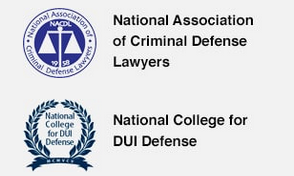Displaying a Firearm
Gun Crime Lawyer Serving the Phoenix Area
Many people enjoy gun culture in Arizona. However, it is unlawful to recklessly display, handle, or discharge a firearm in order to disturb the peace. Displaying a firearm is taken seriously by prosecutors, and a conviction may result in penalties and a criminal record. This charge is considered a disorderly conduct charge. Phoenix gun crime lawyer James Novak is a former prosecutor turned criminal defense attorney. He can bring the insights that he gained from working for the prosecution to develop a strong strategy for your case.
Understanding a Charge of Displaying a Firearm
Under Arizona Revised Statutes section 13-2904, disorderly conduct includes a broad range of behavior that is prohibited. One type of disorderly conduct is displaying a firearm. Other types of disorderly conduct include fighting, violent behavior, use of abusive language, refusing to obey a lawful order to disperse, and making a protracted commotion. However, displaying a firearm is a class 6 felony, whereas other types of disorderly conduct are class 1 misdemeanors. While a class 6 felony is the least serious type of felony, it is still important to realize that a felony conviction and a criminal record may affect your ability to get a job, secure housing, and obtain a professional license, among other things.
If you are convicted of a first-offense class 6 felony, you face the possibility of up to 18 months in prison. If there are mitigating circumstances, such as a clean record, you may be able to get the term down to a few months in prison. However, if there are aggravating circumstances, such as a record of DUIs and other misconduct, you may face up to two years in prison. A knowledgeable attorney can make a difference to your case.
One possible defense consists of the defensive display of a firearm under A.R.S. §13-421. Displaying a firearm is considered justified if a reasonable person would think that it was necessary to show force for the purposes of self-protection against another person trying to use unlawful force. However, you cannot raise this defense if you intentionally instigated a hostile situation with someone else for the purposes of using illegal force. You also cannot use this defense if you used a firearm while committing a serious or violent crime, as these are respectively defined under section 13-706 and section 13-901.03. For example, if you are robbing a supermarket, and someone tries to stop you by taking out a gun, and then you take out a gun, this defense probably would not be successful.
However, if you are defending yourself, and you have justification to use force, you do not need to make a defensive display before using force. In other words, the display is not a necessary aspect of self-defense. You are considered to have made a defensive display if it is justified, and you:
- Reveal the firearm such that a reasonable person would understand that you are trying to protect yourself;
- Tell the other person that you have a weapon available; or
- Put your hand on a firearm that is stored inside something else, including a pocket.
For example, if someone were mugging you, and you told them that you have a gun in your purse, you would likely be successful in raising the defensive display defense. Similarly, if someone were hitting you in the stomach with an iron crowbar, and you took out your gun in order to stop them from continuing, you probably could use this defense.
Discuss Your Situation with a Weapons Crime Attorney in Phoenix
Some people assume that a disorderly conduct offense is not serious. However, displaying a firearm is a felony charge. It may stigmatize you socially or impede your ability to secure a professional license or job. You should retain an experienced and tenacious Phoenix attorney to build a defense on your behalf. Contact James Novak at (480) 413-1499 or via our online form for a free consultation. He also represents defendants who need a felony lawyer in Tempe, Mesa, Chandler, Gilbert, Scottsdale, and other areas of Maricopa County.






















